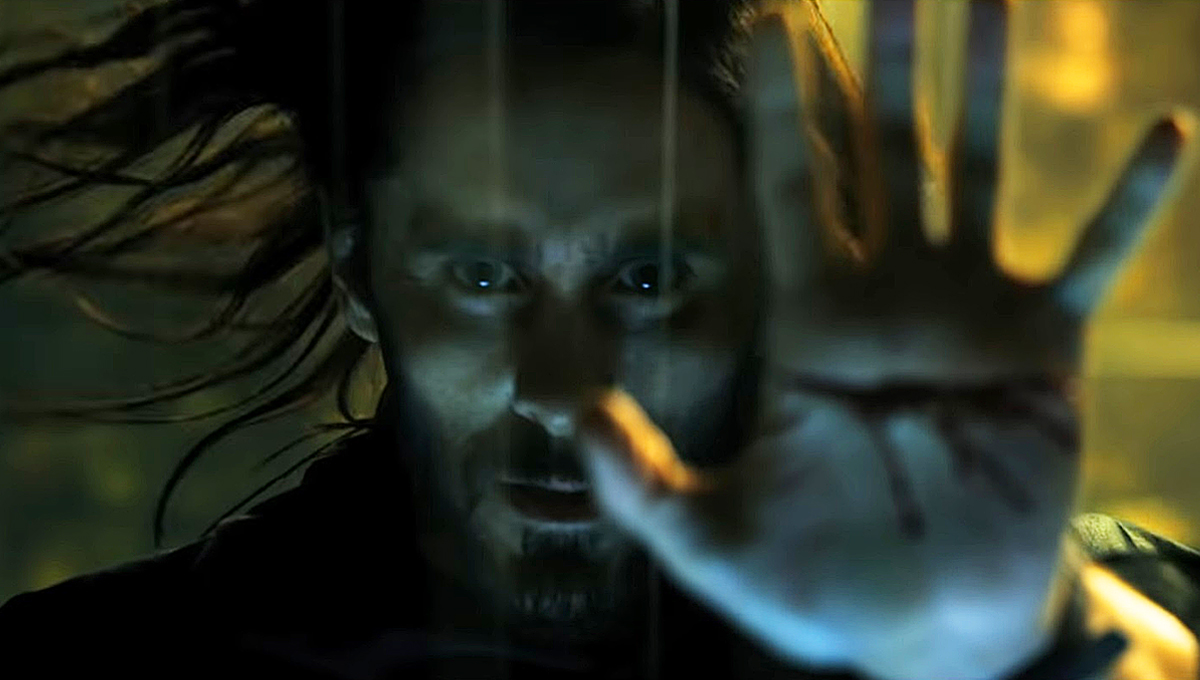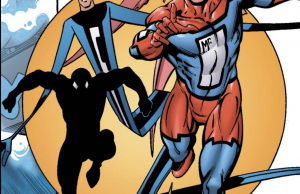
It’s official. Knull has destroyed Sony’s Spider-Man villain universe. Morbin’ time is over. Ezekiel Sims has prevented the future. Kraven’s last hunt has commenced. Or so a cynic might say! (Ahem.) Be that as it may, The Wrap is indeed reporting this weekend’s Kraven the Hunter will bring an end to the shared universe Sony has built around Spider-Man villains.
Honestly, it’s about time. Look, we’ve all had our fun. Tom Hardy’s sweaty take on Eddie Brock made the Venom movies into unlikely and enjoyable rom-coms. Morbius spawned hilarious memes, which in turn spawned major studio blunders. And apparently, people enjoyed seeing third-generation Hollywood nepo baby Dakota Johnson condescend to her own projects on the Madame Web press tour. But let’s face it, Sony’s shared cinematic universe was a dubious idea from the beginning.
Not-So-Amazing Decisions
Sony lucked out when they licensed the film adaptation rights to Spider-Man from a flailing Marvel Comics back in the 1990s. Against all odds, they did the right thing by giving the project to Sam Raimi, an incredibly talented filmmaker whose sensibilities perfectly matched the material. Raimi’s whizz-bang camera movements and utter sincerity led to Spider-Man and Spider-Man 2, the latter of which is still the best superhero film ever made in this writer’s opinion.
But Sony remains a giant business, run by legions of executives who need to please their shareholders. And so good things couldn’t last forever. The studio began increasingly pressing notes onto Raimi’s Spider-Man 3, insisting on the inclusion of Venom. When Raimi left during production of Spider-Man 4, Sony decided to do a gritty reboot with a brooding teen lead, hoping to match the tone of Batman Begins and the Twilight series. While The Amazing Spider-Man and its sequel benefited from fantastic chemistry between Andrew Garfield as Peter Parker and Emma Stone as Gwen Stacy, it squandered it with overstuffed stories designed for shared universe spin-offs.
The train wreck of The Amazing Spider-Man 2 led Sony to cut a deal with Kevin Feige, paving the way for Tom Holland creating a new Spidey in the MCU. Nonetheless, the new status quo of sharing the character didn’t cause Sony to completely reverse course. Instead they doubled down on making a shared universe, turning Spider-Man’s enemies into anti-heroes and stars of their own stories. Although Morbius and Venom have turned heroic and they, along with the Spider-Women in Madame Web, have all carried their own comics from time to time, each title stemmed from a comic book universe where Spider-Man was a a constant daily presence in NYC. And yet, noticeably, whether it was Venom: Let There Be Carnage or Morbius, the new Sony spinoffs refused to ever feature the greatest superhero of all-time.
The Great Responsibility of Spider-Man Movies
At his core, Peter Parker is a regular guy who doesn’t seek the great power given to him. Power doesn’t simplify his life, it complicates it, making it harder to pay his bills and maintain a relationship. He’s overcome by responsibility. Yet as much as he sometimes resents that responsibility, he never fails to see it out, because he knows what it means to struggle, to make a mistake.
Sam Raimi also knew that Spider-Man’s superhero battles stemmed from that fundamental truth, which is why he always focused on Peter’s story first and then the supervillain he was fighting second. At their heart, Morbius, Venom, and Kraven are people who received great power and didn’t know what to do with it, which led to their villain turns. They exist to highlight Spider-Man’s qualities, not to replace him.
Theoretically, making these characters into protagonists of their own stories would have solved their secondary status. Instead of Eddie Brock being a ‘roided up loser whose hatred of Peter Parker prevented him from doing good, Venom and its sequels could have given him a different source of inadequacy and had him wrestle against his worst tendencies, accentuated by the symbiote. Morbius could have been someone who had to fight through his mistake and his vampiric lusts, a conflict with value on its own, outside of its dark reflection of Spider-Man’s plight.
Most galling is Madame Web, which takes a somewhat heroic character who does not rely upon Spider-Man and botches it in the worst possible way. Madame Web reimagines Spider-Man’s primary line “With great power comes great responsibility” and changes it into “When you take on the responsibility, great power will come.” Instead of making Johnson’s eponymous hero a character who learns to care for the Spider-Women because its the right thing to do, she becomes the opposite of Spider-Man, someone who seeks out power, even if it requires taking responsibility she doesn’t want.
In every instance, Sony’s Villian-Verse proved that the company understood nothing about the characters it adapted, let alone Spider-Man. The company only wanted to make IP-driven cash-ins, and it showed.
Against the Spider-Verse
Sony’s utter mishandling of its Villain Universe is further highlighted by the one project they got consistently right. Both Spider-Man: Into the Spider-Verse and Spider-Man: Across the Spider-Verse are miracle movies. Somehow they take a concept known for multiversal shenanigans, focus on the lesser-known Spider-Man Miles Morales, and add in a ton of deep cut variants, and still turn out visually gorgeous and emotionally gripping stories—not once, but twice!
Even today, it’s hard to understand how exactly the Spider-Verse films were made (turns out, a terrible working conditions were part of the equation, sadly). But it sounds like Sony’s determined to find out.
According to The Wrap‘s report, Sony will turn its attention away from the villain films and toward the next Spider-Man movie. That means a fourth Tom Holland Spider-Man flick, which might require Feige to take a heavier hand in the follow-up to Spider-Man: No Way Home. But it also means the third Spider-Verse film.
Does this mean that Spider-Man: Beyond the Spider-Verse will pit Miles and his Amazing Multiversal Friends against Knull? Does it mean Vulture will suddenly appear back in the MCU to fight Tom Holland’s Spidey, this time with Dr. Michael Morbius in tow? After a dance with Morbin’ Time, it’s fair to say anything is possible.
Kraven the Hunter closes out Sony’s Villain Universe in theaters on Friday, Dec. 13.
The post The End of the Spider-Man-Less Spider-Man Movies Didn’t Come Soon Enough appeared first on Den of Geek.








